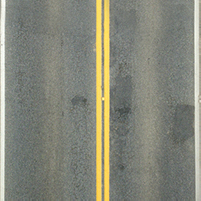TOLEDO, Ohio — Have you thought about driving an autonomous car?
You will find self-driving cars shiny, fancy, and many times the stars of the North American International Auto Show in Detroit.
Self driving cars promise freedom; from steering for you to accelerating the car down the road while you kick back and relax, it is the future that has arrived today.
They also promise a safer ride, with technology watching for threats from all around and warning you, even stopping the car automatically.
Cars with self-driving technology may sound like the next big thing, but would you put your kids in one of them?
A leading safety group with a Toledo office is demanding change, to keep kids safe.
Safe Kids Worldwide called out automakers in a report after it commissioned a Blue Ribbon Panel on self-driving cars.
The 17-member panel of safety and transportation experts is demanding automakers take immediate action to protect child passengers in self-driving cars.
The study wants those safety considerations to be part of the design and development of these cars and not as an afterthought.
Safe Kids Greater Toledo Coordinator Gina Veres says even though we don't see autonomous cars all over the roads yet, we have to assume they will be in upcoming years.
"We know how fast technology evolves. Just less than 50 years ago, we didn't really even have car seats, and now we're still trying to be reactive and we're not protecting our children as best as we can," Veres said.
The report asks how children will be safe if a supervising adult in the vehicle is sleeping or impaired, and what would happen if the vehicle breaks down or gets re-routed to an unknown location.
Veres says there are too many unknowns.
"It's kind of like a mobile office or even like a living room, where the vehicle seats are facing different directions. They probably will eventually recline too, so people can sleep in them. But we can't have car seats in all of those different directions, at least not the ones that we have now," she said.
WTOL asked top automakers on what they're doing in response to this safety report.
A Fiat Chrysler spokesperson said in a statement they have an organized framework to develop, test, and validate safe automated passenger vehicles:
FCA is part of the “Safety First For Automated Driving.” The collaborative effort of 11 automotive, supplier and technology leaders: Fiat Chrysler Automobiles; BMW; Daimler; Volkswagen; Audi; Continental; Intel; Infineon; Aptiv; Baidu; HERE Technologies sets out an organized framework for the development, testing and validation of safe, automated passenger vehicles. This is becoming increasingly important with the rapid growth of companies developing automated driving technologies.
Safety First for Automated Driving sets the expectation through defining a principal that Automated Driving system manufacturers should consider passive safety design for all vehicle occupants and the protection of those occupants considering the potential new uses of the interior of the vehicle made possible by the automation system.
At this time there are many unknowns, such as how will automated vehicle driving interiors functions in the future and what new uses must we consider. It is one of the twelve principles we define which must be addressed.
General Motors says it plans to equip self-driving cars with enhanced seat belt reminders to make the seat belt reminder tone more engaging.
They will also develop seat belt reminder mats to detect that a young person is sitting in a rear seat.
Veres hopes the automakers follow through.
"But we can't be way behind with the regulations and laws and not protect our children like we need to," Veres said.
The study also demands automakers support changes to federal safety standards, wants them to market and advertise self-driving cars by showing families with children, riding while using best safety practices.


